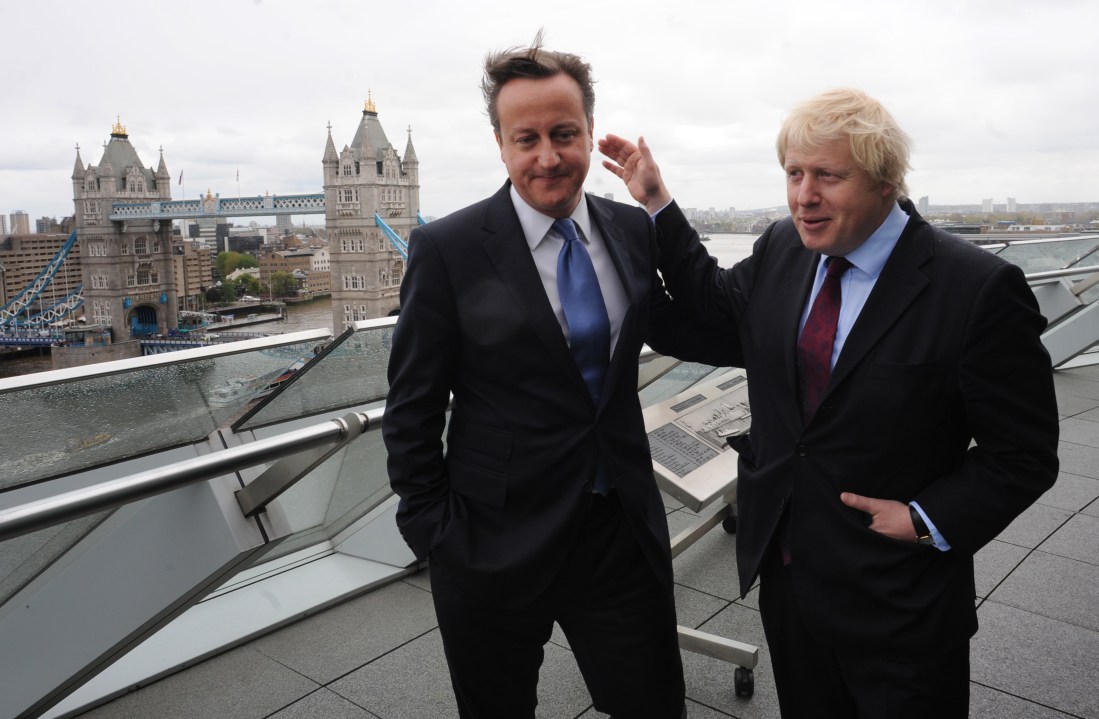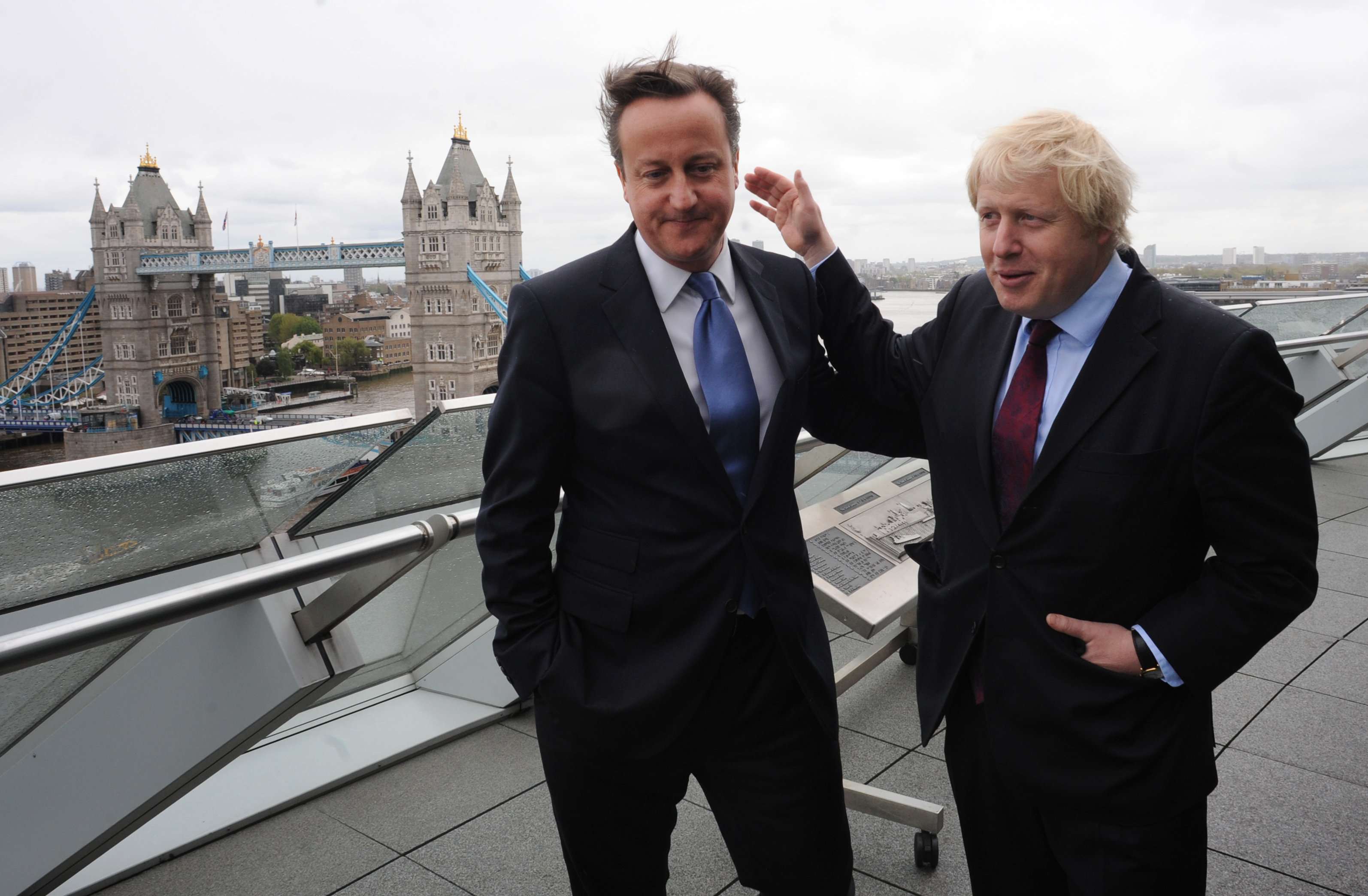As I type this, pundits in London are stiffening themselves for the tough task of over-interpreting local election results and projecting wildly unrealistic forecasts for the next general election on the back of a mid-term election in which the electorate is of an entirely different type to that which will vote in 2015. It’s a grim job but someone has to do it and it’s better that it be done with enthusiasm than with any sense of proportion.
Mercifully, my friend and former boss Iain Martin is not one of those types. Be that as it may, however, he has written a column for Friday’s Telegraph that is both typically acute and evidence of how the Tory winds no longer blow in David Cameron’s favour.
Indeed Iain begins, I think, from the premise that the Cameronian project has essentially failed. Worse, it has little chance of recovery. The recent, merited, ThatcherFest encouraged the Tory tribe to contrast what once was – and has since been lost – with what now is. Since the memory of the Thatcher years is tinged with nostalgia (a Tory virtue if enjoyed in moderation; a vice if allowed to run free), the reality of Cameron’s ministry can scarcely compare with the lost glories of the past.
This would most probably still be true even if the party was not cohabiting, uneasily it must be said, with the Liberal Democrats. Traditional Conservative warnings about the importance of marriage, that is, of real commitment, are justified, politically speaking, by this coalition.
Even so, coalition has complicated Cameron’s task. No wonder many Tories pine for an earlier, notionally simpler, age. As Iain says, this requires misremembering Margaret Thatcher’s actual record but that record is a mere and perishable detail. The substance matters but, nearly 25 years later, it’s the style or the attitude that is remembered so fondly.
So Iain is right to argue that Cameron’s fusionism has failed. Or, to be more kind, seems to be failing at present. He has alienated “core” voters without necessarily replacing them with new supporters. As Mr Martin writes:
It is no exaggeration to describe it as a Tory tragedy. David Cameron is a likeable figure, someone who was well-placed to build a bigger tribe if only he had been more open-minded and nimble. For in fact, the modernisers and the traditional Right are both wrong. They need each other to stand a hope; they simply cannot create a winning Conservative coalition alone, and never could.
This is true. But fusionism is a trick that’s more difficult to pull off in an age of fragmented politics and at a time when party allegiances are more flimsy than once they were. We are not where we were – or who we were – back in 1979. Iain suggests that Cameron has ignored some lessons he could have learned from Ronald Reagan. Perhaps so, but it is telling – surely – to look at the predicament in which the Republican party finds itself in America and compare or contrast that with the Tories’ difficulties.
Because there are some similarities. As always, the “read across” the Atlantic is imperfect and should not be taken as any kind of gospel revelation. Even so, just as the Conservatives have not won a majority in 21 years, so the Republican party has lost the popular vote in five of the past six Presidential elections. Conservatism – or rather, Conservative hopes for a majority – is in trouble on both sides of the Atlantic.
Prominent members of the Republican party too often ask “What would Reagan do?” in the presumption that the answer will be a useful guide to today’s problems. But just as we are now as distant from Thatcher’s election as she was from Clement Atlee’s so Reagan’s first victory is as close to Harry Truman’s presidency as it was to Barack Obama’s re-election. The world has changed.
The alliance between social conservatives, economic conservatives, defence hawks and assorted libertarians has frayed in the United States. It may revive but, all things being equal and on current trends, it seems likely that the GOP is going to be less well-placed to win more than its fair share of Presidential elections. Something similar may be said of the Tories.
Each finds itself caught in a cleft stick. Much, perhaps even a majority, of their core vote is not altogether pleased with recent societal trends. There is an all too palpable sense that they pine for earlier, better, times. Of course this is not the whole story, not least since senior figures in both the GOP and the Tories are only too acutely aware of how present demographic trends do not favour their party and are determined to do something about it.
But what to do about it? And how do you concurrently tell new and younger voters that you are not the caricature they think you are while reassuring older, existing voters that not much has changed or that, really, little needs to? Almost by definition it is difficult for a conservative party to straddle old and new (though that is also the point of a conservative party). And it becomes especially difficult when the leftwing alternative is not obviously loopy to the tonsils.
Hence the Tories’ desperate struggle with gay marriage. Good faith apart, this is a policy supposed to make voters – perhaps especially younger, more metropolitan voters – think the Tory party really has changed. But, as Iain correctly says, it is also one that leaves many veteran Tory voters wondering what the hell has happened to the party they’ve supported all these years.
In the United States, it is, at least at present, immigration policy that is designed to show that the GOP has made its peace with a changing America. But it is far from clear that, at least in the short to medium term, passing immigration reform will really win many new supporters. Indeed, it might prove counter-productive. And it will certainly displease many voters who are presently reliable Republicans.
Perhaps not every circle can be squared. But “core vote” strategies are no less risky than “reaching out” to the centre-ground. George W Bush’s core vote approach – in war-time no less – was only just enough to defeat John Kerry. John Kerry, for goodness sake. We all know how Tory core vote plans have fared this century.
Demographics are not necessarily destiny but in neither the United States nor the United Kingdom do they seem to favour conservatives. The GOP’s problem with black and hispanic voters is well known. The Tories’ difficulties with minority voters in Britain deserves more attention than it generally receives.
Because it is not just a problem amongst minority voters but also among white voters who are disinclined to trust or favour a party that, however unfairly, is perceived to have a “problem” with minority voters. It is not a question of tailoring policies to appeal to specific parts of the electorate – that’s pup-selling of the most stupid kind – but, rather, a matter of demonstrating the party is not just as ease with, but a celebrant of, modern life in all its polyglot, multi-coloured variety.
Just as the Tories have a problem in large parts of the north of England, so they have a problem in London. How does the party appeal to its heartland – and avoid taking them for granted – and simultaneously make itself attractive to a capital city in which only 44% of residents are “white British”?
Again, remember that the parts of Britain most resistant to the Tory “detoxification” project are London and Scotland. The latter may be a lost cause; the question is whether the former will become one too.
There is, of course, one man who seems able to straddle all these divisions. Iain Martin ends his (splendid) column with this provocation:
Ironically, when David Cameron eventually stands down in 2015 or 2017, the question confronting his party will be very similar to the one he posed in 2005. How can the Tory family be extended and broadened so that it can win properly? I suspect that the answer may lie outside the sphere of conventional Westminster politics. When the time comes, it will take a leader with the ability to make voters – sick of austerity and relative decline – forget their differences. Someone with Thatcher-like charisma, Reaganite optimism, star power, chutzpah, pragmatism, vision, luck, experience of holding office in a leading world city, and perhaps a mop of blonde hair. Is there such a person available?
Is it Boris or bust? And if it is then what does that say about the Conservative party and, more importantly perhaps, Britain? I think I know what David Cameron believes in but it is evidence of his failure that, seven years after he became leader, he has neither persuaded his party nor the country of quite whatever those beliefs are.








Comments